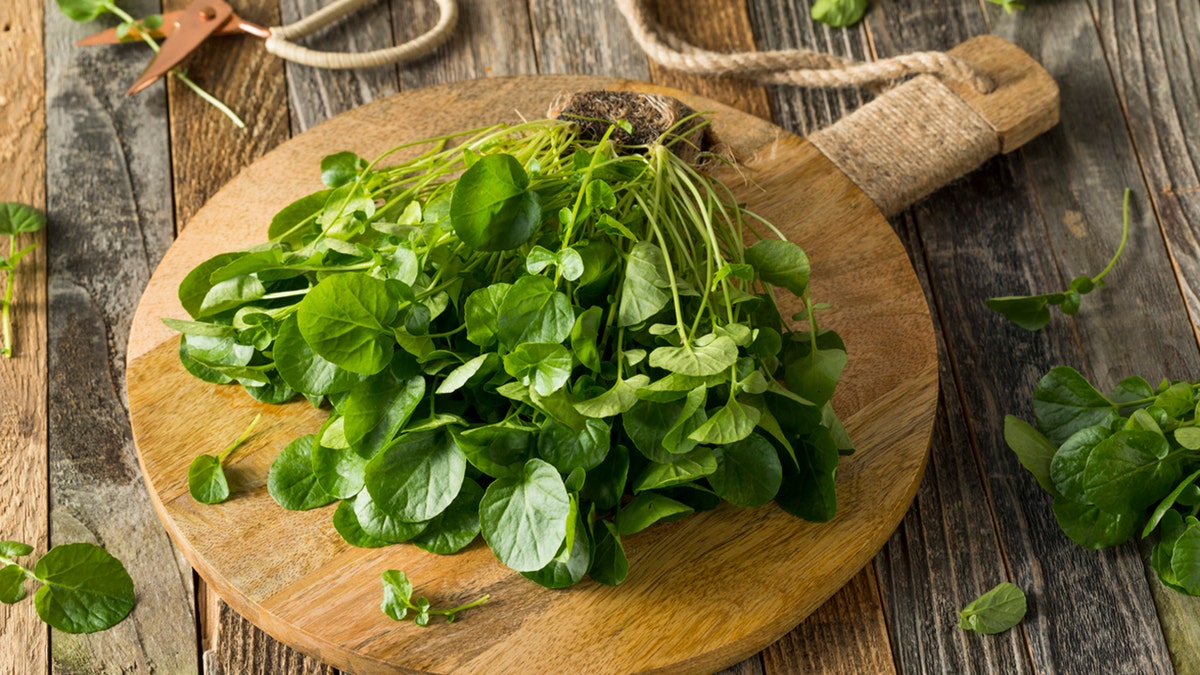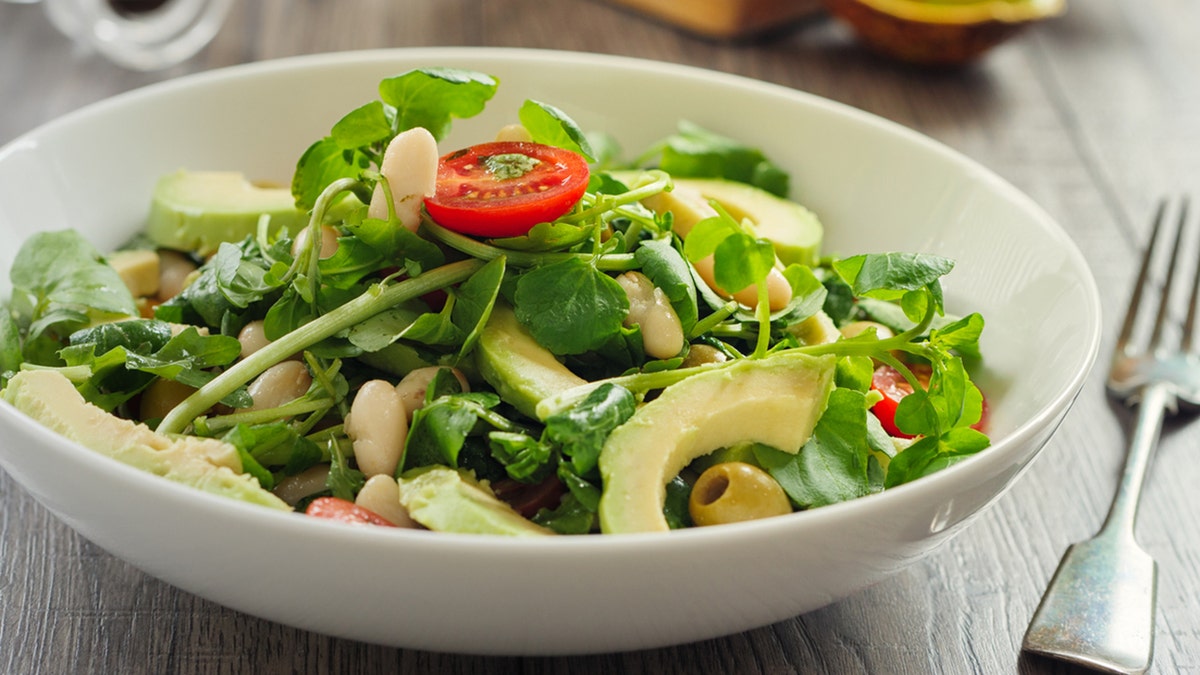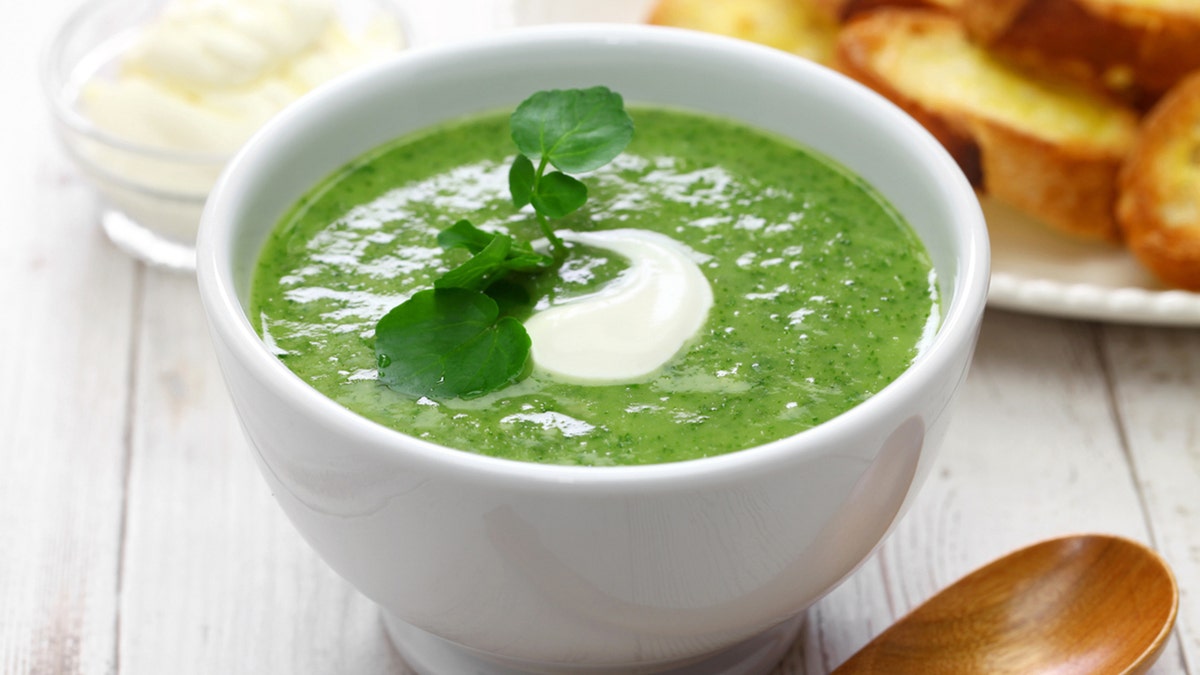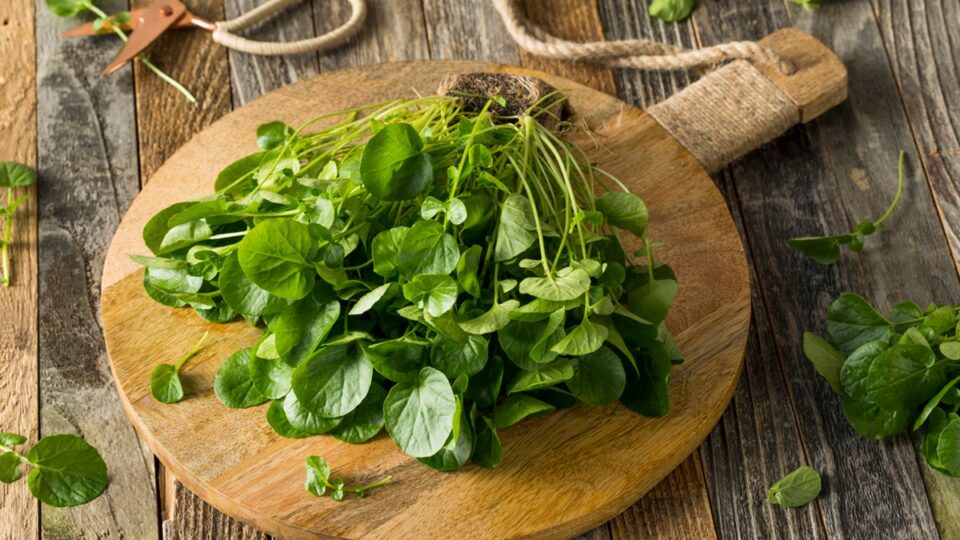When it comes to healthy eating, veggies are always a good choice — but one takes the cake for being the healthiest.
Watercress is the most nutrient-dense vegetable, receiving a perfect score of 100 in the CDC’s long-standing ranking of “powerhouse” fruits and vegetables (PFVs).
Chinese cabbage is a close second with a score of 91.99, followed by chard (89.27), beet greens (87.08) and spinach (86.43).
THESE 6 ‘HEALTHY’ FOODS WON’T HELP YOU LOSE WEIGHT, NUTRITIONIST WARNS
These foods, among a total of 41 that qualified as PFVs, were found to contain 17 nutrients, including potassium, fiber, protein, calcium, iron, thiamin, riboflavin, niacin, folate, zinc, and vitamins A, B6, B12, C, D, E and K.

Watercress is the most nutrient-dense vegetable, receiving a perfect score of 100 in the CDC’s ranking of “powerhouse” fruits and vegetables. (iStock)
Cruciferous items, including watercress, Chinese cabbage, collard greens, kale and arugula — as well as leafy greens, like chard, beet greens, spinach, chicory and leaf lettuce — took the top spots on the list.
Yellow and orange foods, like carrots, tomatoes, winter squash and sweet potatoes — along with allium, citrus and berry croups — landed in the bottom half.
2 SURPRISING FOODS FOR FALL THAT ARE DELICIOUS, HEALTHY AND EASY TO PREPARE
When it comes to the top veggie, watercress, nutritionists agree that it has a multitude of health benefits.
1. Rich in nutrients and low in calories
Watercress has “remarkable levels” of vitamins K, A, C and B, as well as magnesium, calcium and potassium, according to Serena Poon, certified nutritionist and celebrity longevity advisor in Los Angeles.
Vitamin K, calcium and magnesium are great for bone health, Poon told Fox News Digital, while vitamin C supports immune health, collagen production and skin radiance.

Watercress has “remarkable levels” of vitamins K, A, C and B, as well as magnesium, calcium and potassium, according to a nutrition expert. (iStock)
“Watercress may be tiny, but it’s one of the most nutrient-dense foods you can find,” Poon said.
“Plus, since it’s low in calories, you get all these benefits without adding much to your daily caloric intake.”
Los Angeles-based registered dietitian nutritionist Ilana Muhlstein agreed, telling Fox News Digital that consumers can get more than 50% of their daily value of vitamins C, A and K in three cups of watercress.
2. Supports heart health
Watercress is rich in antioxidants, which can help reduce inflammation and oxidative stress – two “key contributors” to heart disease, Poon noted.
The vegetable also contains compounds like beta-carotene, lutein and zeaxanthin, which support heart health and improve blood vessel function.
“Greens are numero uno when it comes to healthy food.”
“Additionally, the nitrates in watercress are known to lower blood pressure, further protecting your cardiovascular system,” Poon added.
“Adding watercress to your meals could be a simple yet powerful way to give your heart some extra support.”

Watercress is rich in antioxidants, which can help reduce inflammation and oxidative stress – two “key contributors” to heart disease, an expert noted. (iStock)
All dark greens and cruciferous veggies contain “powerful levels of antioxidants, but typically get overshadowed by other things like berries,” according to Muhlstein.
“Greens are numero uno when it comes to healthy food,” she said.
3. Could reduce cancer risk
As powerhouse vegetables are strongly associated with reduced chronic disease risk, watercress could also reduce cancer risk, according to Poon.
ULTRA-PROCESSED FOODS MAKE UP 60% OF AMERICA’S DIET, WHO’S AT BIGGEST RISK
“Watercress contains powerful phytochemicals, including glucosinolates, which have been shown to inhibit cancer cell growth,” she said.
“When you chew watercress, these glucosinolates are converted into isothiocyanates, compounds that have been studied for their anti-cancer properties.”

As powerhouse vegetables are strongly associated with reduced chronic disease risk, watercress could also reduce cancer risk, experts say. (iStock)
Previous research has suggested that watercress may help prevent DNA damage and reduce the risk of certain cancers, particularly those affecting the lungs and digestive tract, Poon added.
4. Encourages hormone balance
Nutrient-rich watercress can also support hormone health through its high levels of B vitamins, calcium and magnesium.
CLICK HERE TO SIGN UP FOR OUR HEALTH NEWSLETTER
These nutrients “play roles in neurotransmitter balance, stress response and metabolic function, which are all vital for maintaining hormonal equilibrium,” Poon told Fox News Digital.

Watercress’ antioxidant properties could also help to reduce inflammation, “an underlying factor that can disrupt hormone balance,” an expert noted. (iStock)
5. Aids in detoxification and liver health
The natural compounds in watercress, like sulfur, can enhance the body’s natural detoxification process and support liver function, according to Poon.
For more Health articles, visit www.foxnews/health
“This leafy green can help support the liver’s ability to filter toxins and promote the elimination of waste products, making it a great addition to any detox-supportive diet,” she said.
6. Supports skin health
Watercress can also give the skin a natural glow, Poon noted, as antioxidants like vitamin C, beta-carotene and lutein support skin elasticity and radiance.
“Vitamin C, in particular, is essential for collagen production, which helps maintain skin firmness and can reduce the appearance of fine lines,” she added.
